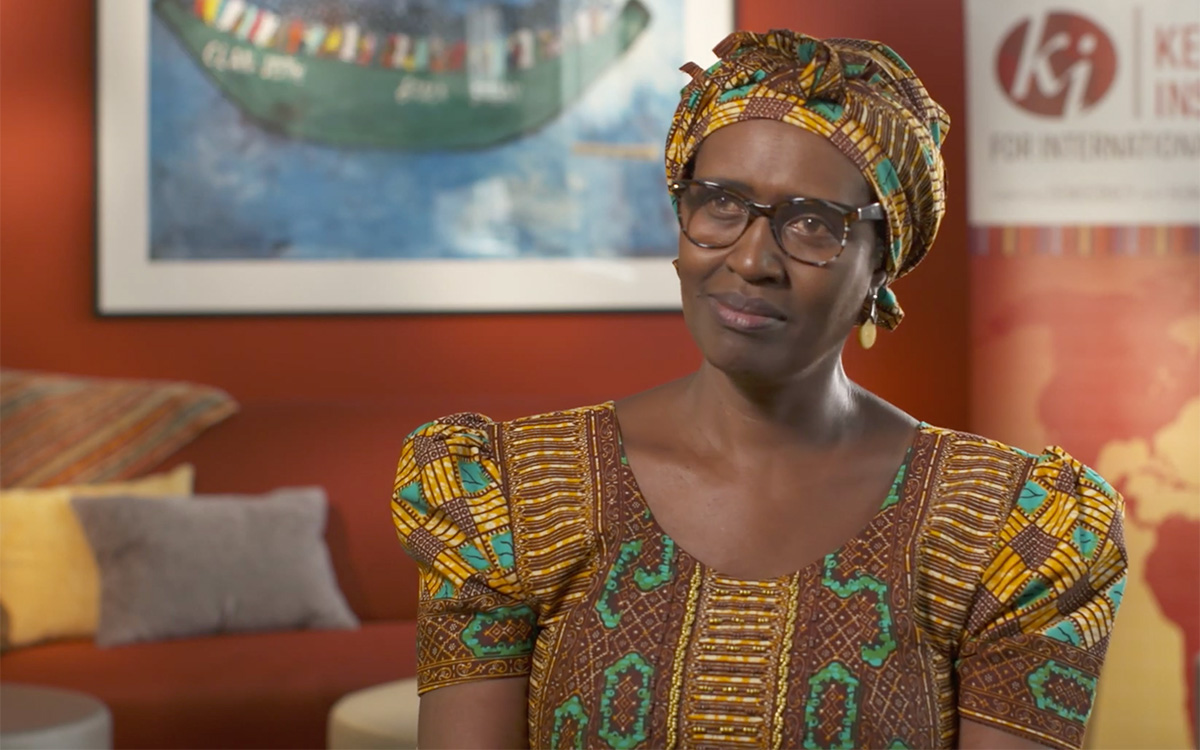United Nations
UN officials reiterate calls for countries to decriminalize homosexuality
Volker Türk and Winnie Byanyima issued statement before global AIDS conference

The U.N. human rights chief and UNAIDS’s executive director have reiterated their calls for countries to decriminalize consensual same-sex sexual relations.
“Laws criminalizing LGBTQ+ people must be consigned to history,” said Volker Türk and Winnie Byanyima in a statement they released on July 19.
The 25th International AIDS Conference began in Munich on Monday.
The statement notes Angola, Antigua and Barbuda, Barbados, Belize, Bhutan, Botswana, the Cook Islands, Dominica, Gabon, India, Mauritius, Mozambique, Namibia, Nauru, Palau, St. Kitts and Nevis, Seychelles, Singapore, and Trinidad and Tobago over the last decade have repealed laws that criminalized consensual same-sex sexual relations.
The Namibian High Court on June 21 struck down the country’s Apartheid-era sodomy laws.
Dominica’s High Court of Justice in April ruled provisions of the country’s Sexual Offenses Act that criminalized anal sex and “gross indecency” were unconstitutional. Justice Kimberly Cenac-Phulgence in the decision said “the laws commonly known as buggery and gross indecency laws, contravenes the constitution of the Commonwealth of Dominica, namely the right to liberty, freedom of expression, and protection of personal privacy.”
Burkina Faso’s military government earlier this month said it plans to criminalize consensual same-sex sexual relations in the country. Ugandan activists continue to challenge their country’s Anti-Homosexuality Act.
Activists maintain criminalization laws harm people with HIV/AIDS, among other groups. Türk and Byanyima in their statement say these statutes “harm public health.”
“Criminalization of LGBTQ+ people generates justified fear amongst people who need access to health services, and amongst the frontline workers who provide those services,” they said.
“In criminalizing countries, there is decreased provision and uptake of HIV prevention services, and decreased uptake of HIV care and treatment services,” added Türk and Byanyima.
They conclude the “decriminalization of LGBTQ+ people is vital for protecting everyone’s human rights and everyone’s health.”
Congress
Mike Waltz confirmed as next UN ambassador
Trump nominated former national security advisor in May

The U.S. Senate on Sept. 19 confirmed former U.S. Rep. Mike Waltz (R-Fla.) as the next U.S. ambassador to the U.N.
The Florida Republican had been the national security advisor until President Donald Trump in May tapped him after U.S. Rep. Elise Stefanik (R-N.Y.) withdrew her nomination in order to ensure Republicans maintained their narrow majority in the U.S. House of Representatives.
Senators approved Waltz’s nomination by a 47-43 vote margin.
“Thank you President Trump and the U.S. Senate for your trust and confidence to Make the UN Great Again,” said Waltz on X.
The U.N. General Assembly is taking place this week in New York. Trump is scheduled to speak on Tuesday.
United Nations
UN Human Rights Council extends LGBTQ rights expert’s mandate
29 countries voted for resolution

The U.N. Human Rights Council on Monday extended the mandate of the United Nations’ independent LGBTQ rights expert for another three years.
The resolution passed with 29 countries (Albania, Belgium, Bolivia, Brazil, Bulgaria, Chile, Colombia, Costa Rica, Cuba, Cyprus, the Czech Republic, the Dominican Republic, France, Georgia, Germany, Iceland, Japan, Kenya, the Marshall Islands, Mexico, the Netherlands, North Macedonia, South Korea, Romania, South Africa, Spain, Switzerland, Thailand, and Vietnam) voting for it and 15 countries (Algeria, Bangladesh, Burundi, China, Cote d’Ivoire, Democratic Republic of Congo, Ethiopia, Gambia, Indonesia, Kuwait, Malawi, Maldives, Morocco, Qatar, and Sudan) voted against it.
Benin, Ghana, and Kyrgyzstan abstained.
The U.S. in February withdrew from the Human Rights Council. The Trump-Pence administration in 2018 pulled the U.S. from it. The U.S. in 2021 regained a seat on the Human Rights Council.
Graeme Reid has been the UN’s independent LGBTQ rights expert since 2023. The South African activist, among other things, previously ran Human Rights Watch’s LGBT Rights Program.
United Nations
Trump pulls Elise Stefanik’s UN ambassador nomination
Republicans have slim majority in US House of Representatives

President Donald Trump on Thursday withdrew U.S. Rep. Elise Stefanik (R-N.Y.)’s nomination to become the next U.S. ambassador to the U.N.
The Associated Press noted Trump in a Truth Social post said it was “essential to maintain every Republican seat in Congress.”
Republicans currently have a narrow 218-213 majority in the U.S. House of Representatives. Special elections to fill the seats that National Security Adviser Mike Waltz and former U.S. Rep. Matt Gaetz (R-Fla.) vacated when they joined the Trump-Vance administration and resigned respectively will take place on April 1 in Florida.
“Elise Stefanik is truly a great leader and a devoted patriot,” said House Speaker Mike Johnson (R-La.) in a statement. “Today’s selfless decision shows America what those of us who work with her already know. She is deeply devoted to her country and fully committed to see President Trump’s agenda succeed in Congress.”
“It is well known Republicans have a razor-thin House majority, and Elise’s agreement to withdraw her nomination will allow us to keep one of the toughest, most resolute members of our conference in place to help drive forward President Trump’s America First policies,” he added. “There is no doubt she would have served with distinction as our ambassador to the United Nations, but we are grateful for her willingness to sacrifice that position and remain in Congress to help us save the country.”
Stefanik, 40, has represented New York’s 21st Congressional District since 2015. She later became chair of the House Republican Conference.
Stefanik in 2019 voted for the Equality Act, but she opposed it in 2021. Stefanik in 2022 is among the dozens of Republicans who voted for the Respect for Marriage Act that then-President Joe Biden signed.
Stefanik, among other things, has also been outspoken against antisemitism on college campuses.
Trump has not said who he will nominate to become U.N. ambassador. Johnson in his statement said he will “invite her to return to the leadership table” of the House Republican Conference “immediately.”
-

 U.S. Supreme Court4 days ago
U.S. Supreme Court4 days agoSupreme Court hears arguments in two critical cases on trans sports bans
-

 Virginia5 days ago
Virginia5 days agoWoman arrested for anti-gay assault at Alexandria supermarket
-

 District of Columbia4 days ago
District of Columbia4 days agoRuby Corado sentenced to 33 months in prison
-

 Commentary5 days ago
Commentary5 days agoHonoring 50 queer, trans women with inaugural ‘Carrying Change’ awards




















